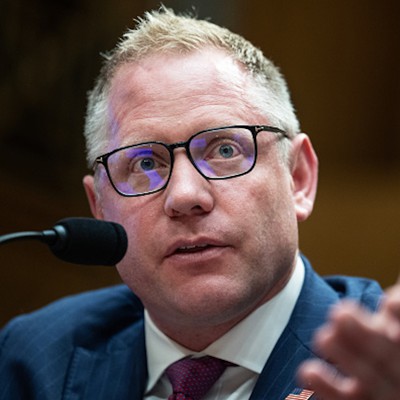

Sean Plankey, President Donald Trump’s pick to head the Cybersecurity and Infrastructure Security Agency, told lawmakers in a Thursday Senate nominations hearing that, despite the significant cuts CISA has experienced in recent months, he can get the funding it needs to protect the American public.
In the latter portion of Trump’s first term as president, Plankey served as principal deputy assistant secretary for the Office of Cybersecurity, Energy Security and Emergency Response at the Department of Energy, overseeing energy sector engagement, preparedness, response efforts and research aimed at safeguarding U.S. energy infrastructure.
Prior to that, he served as the director for maritime and pacific cybersecurity policy at the National Security Council and also held cybersecurity leadership roles at U.S. Cyber Command. Plankey was scheduled to appear before the committee early last month, but was initially pulled due to paperwork delays. He has most recently worked in a senior advisor role handling Coast Guard matters for the Department of Homeland Security.
Sen. Gary Peters, D-Mich., the ranking member on the Senate Homeland Security Committee, focused much of his questioning on funding and workforce cuts to the cybersecurity agency that Plankey would oversee.
“Cyberattacks are one of the most significant national security threats our nation faces, and I’m extremely concerned by this administration’s actions that are undercutting CISA’s capacity to defend our nation,” Peters said.
Plankey said he would request additional funding from DHS Secretary Kristi Noem if he finds the agency’s budget insufficient to defend U.S. critical infrastructure from mounting threats, including those from China.
“I have no doubt, if I go to her and tell [Noem], we’re driving in this direction to protect the American public, she’ll work under the president’s leadership to then work with Congress to get us the funds we need,” Plankey said.
CISA has been in the Trump administration’s crosshairs for some time, with top officials working to “refocus” its mission amid GOP accusations that the agency engaged in censorship of Americans’ free speech when it worked with social media companies to remove false information online about the COVID-19 pandemic, elections and other contentious topics in and around 2020. Noem has made it a point to re-scope the agency away from such efforts under Trump.
“It is not CISA’s job, and nor is it in its authorities, to censor or determine the truths, whether it be on social media or in any level of media,” Plankey told senators. “CISA will not do any of that work, will not be a part of any of that work if I am confirmed.”
Plankey told Sen. Richard Blumenthal, D-Conn., that he has “not reviewed any of the cybersecurity of the 2020 election,” when asked if the election was “rigged or stolen.”
“As a cybersecurity professional, these are state run elections,” Plankey also said. “I have not reviewed the cybersecurity posture of all 50 states.”
“Your role in that agency is to be above politics,” Blumenthal said. “If you can’t tell us with conviction and conscience that those elections were secure, I have very serious doubts about your ability to lead this agency.”
Election infrastructure, like voting machines and other platforms that facilitate voter registration, ballot casting and vote tabulation, are considered critical infrastructure under CISA definitions. Trump in 2020 falsely claimed the election was rigged and stolen from him. When former CISA director Chris Krebs said the election was the “most secure in American history,” Trump subsequently fired him.
Krebs, as well as his former private sector employer, have since been targeted by the second Trump administration.
In the hearing, Plankey later committed to working to renew the Cybersecurity Information Sharing Act of 2015, a backbone cyber information-sharing law that lets the private sector send threat intelligence to government partners with legal protections in place. It’s set to lapse Sept. 30.
He echoed that support for the State and Local Cybersecurity Grant program, set to lapse the same day.
“There’s many rural areas of America, and CISA exists to support all Americans across the United States, and one of the best ways to do that is through the state and local grant program,” he told Sen. Maggie Hassan, D-N.H.
With a Republican majority in the Senate panel, Plankey stands a strong chance of his nomination passing to the larger Senate vote.
The nomination could still face a hurdle from Sen. Ron Wyden, D-Ore., who previously stated his intent to block Plankey’s nomination and only lift the hold once CISA releases a 2022 report on telecom industry security vulnerabilities.



